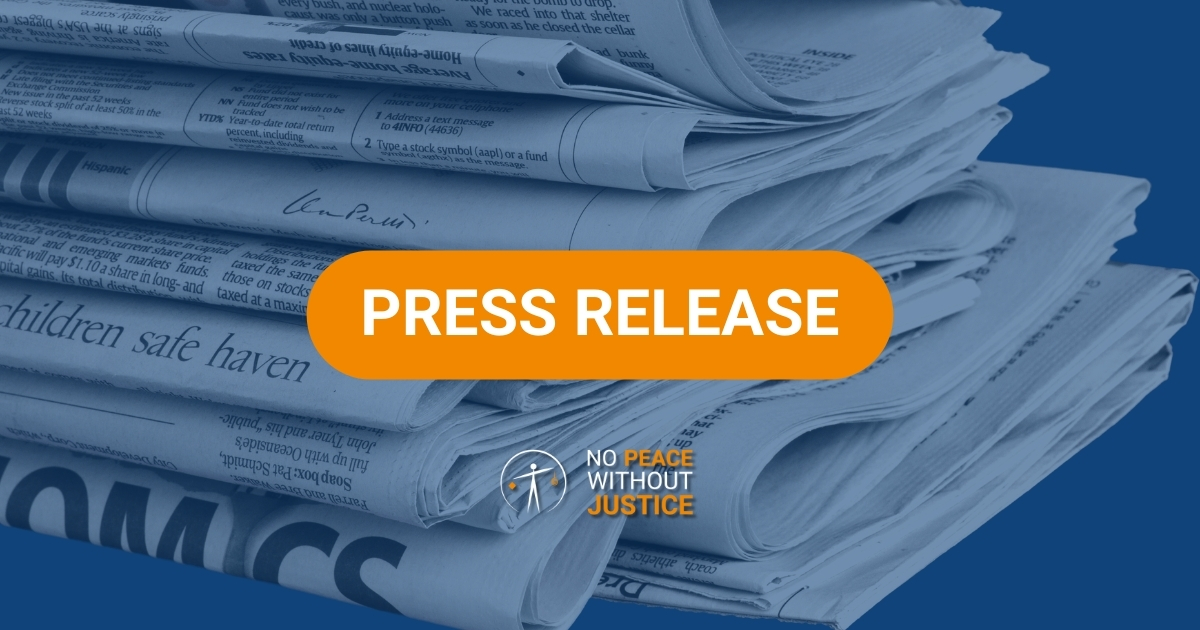No Peace Without Justice commemorates International Justice Day in 2023, as we have done for the past 25 years. In that time, we have witnessed many ups and downs for international criminal justice. We have seen the birth, life and winddown of many country or region specific international and hybrid courts and tribunals. We have seen universal jurisdiction come into its own, after a shaky start with the Pinochet case in the late 1990s. There has been a myriad of commissions of inquiry, truth and reconciliation commissions and the innovative use of UN General Assembly powers to create the International, Impartial and Independent Mechanism for Syria (IIIM) and the United Nations Independent Investigative Mechanism for Myanmar (IIMM). Most recently, we have seen an uptick in cases involving crimes within the jurisdiction of the ICC being taken to the International Court of Justice, starting with the historic action brought by The Gambia, alleging Myanmar’s violations of the Genocide Convention. This is the broader context within which the International Criminal Court (ICC) was created, with the adoption of the Rome Statute on this day in 1998, its entry into force in 2002 and its now 21 years of operational experience. As the world’s first and only permanent international criminal court, the ICC lies at the heart of the entire international criminal justice system.
On this International Justice Day, we reaffirm our strong support for the ICC, its States Parties and the countless human rights defenders and civil society advocates who work tirelessly for the benefit of the Rome Statute system and in support of victims of Rome Statute crimes, often at great risk to themselves. We recognise that despite many challenges, some but not all of which lie with the Court, significant progress has been made in the past year. We welcome the streamlining of the work of the Office of the Prosecutor and particularly commend the Office’s approach towards ensuring a focus on crimes against and affecting children, including its recognition of children who come into contact with the Court as rights holders, and the significant progress it has made in developing and deepening understanding of and commitment to focusing on sexual and gender-based crimes, including gender persecution. We also welcome the focus of the Prosecutor on complementarity and the role the ICC can play in encouraging and supporting national prosecutions; we look forward to the OTP’s development of its Complementarity Policy and to engaging with the OTP in that process. We also commend the work underway to strengthen the work of the other organs of the Court, including through the Review Mechanism, and look forward to further progress, especially under the leadership of the new Registrar.
The three main challenges that the Court continues to face are political will; resources; and operational approaches to achieve its mandate. Political will lies primarily in the hands of the ICC’s State Parties: they must ensure their support for the Court is strong, vocal and visible. This is a constant, enduring need, not just when the Court is under political attack. States Parties should also show the same support for human rights defenders who are at risk, including being under attack, because of their association with the Court. In this respect, we welcome the remarks made by the ASP President at the conclusion of last year’s Assembly of States Parties and call on all States to strengthen support for human rights defenders, which would also be a fitting way to commemorate another 25th anniversary, that of the UN Declaration on Human Rights Defenders.
Approving adequate resources and providing those resources also lie primarily in the hands of the ICC’s State Parties, upon whom we call to reject arbitrary limitations on the Court’s budget such as the zero nominal growth approach. At the same time, it is essential that the Court asks for what it really needs, within the context of its general operating budget and in light of its increasing workload. We note that political will and resources appear to go hand in hand, recalling the outpouring of political and extra-budgetary financial support on the occasion of the opening of an investigation in Ukraine early last year. In this respect, we wish to highlight that better investigations and prosecutions lead to increased needs in other areas, including victim’s participation and reparations, outreach, witness support, legal aid, family visits, court management, interpretation and everything else necessary for ensuring a fair trial and a process that is meaningful for victims and affected populations. These things need to be provided through the Court’s regular budget; reliance on voluntary contributions and seconded personnel risks not only that the Court’s regular budget is strangled, it risks perceptions of double standards and reduced independence of the Court.
The operational approaches of the Court in discharging its mandate lie solely in the hands of the Court itself, and more specifically in the hands of each individual organ of the Court. In this respect, we wish to highlight that the Court is no longer in its infancy: it is a well-established actor at the heart of the international criminal justice system. During its lifetime, it will see – and has already seen – other international and hybrid accountability mechanisms come and go. Significant progress has been made, as noted above, but the Court must do better to improve its working methodologies and operational approaches, to ensure that it is a positive and empowering experience for the victims and affected communities on whose behalf it discharges its mandate. We take this opportunity to reinforce the importance of the work of different organs of the ICC, particularly in terms of outreach; strengthening the Court’s field presence; the development of a comprehensive, court-wide situation specific completion strategies; and ensuring the promotion and protection of the rights of the child. We wish to highlight that for children in particular, the journey to justice inevitably involves a range of actors, within and outside the ICC, who should be acting according to common principles and approaches to ensure consistency and clarity for that child. Throughout the journey, the child has different levels of resilience, capacities, perspectives, vulnerabilities and needs. As such, an ongoing review and assessment of the best interests of that child is needed to ensure the journey is empowering and does no harm. With that in mind, we call upon the Court to strengthen its internal cooperation, to ensure the Court speaks and acts with one voice and one vision. We also encourage the Court to intensify its efforts in respect of specific situations within its jurisdiction, to strengthen their effectiveness and efficiency while achieving strong results.
Ongoing human rights violations, from Afghanistan to Ukraine, remind us that the fight for international justice must continue to be a high priority. No Peace Without Justice continues to stand with the Court, its State Parties, the victims it serves and the human rights defenders who are the lifeblood of the whole system.
For further information, contact Alison Smith, International Justice Director, on asmith@npwj.org or Nicola Giovannini, Press & Public Affairs Coordinator, on ngiovannini@npwj.org.




